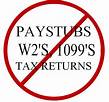I am going to start this blog with a DISCLAIMER – It is not my intention or goal to provide an opinion or view on the case that has inspired this Blog: Ramsey vs VDOT
With that – it is interesting the range of emotions that sweep people when they hear these 2 words side by side “EMINENT DOMAIN”
The online resource, the free dictionary provides this definition:
“The power to take private property for public use by a state, municipality, or private person or corporation authorized to exercise functions of public character, following the payment of just compensation to the owner of that property.”
Seems simple enough – no one is “losing” anything just provide “just compensation”. LOL
The Commonwealth of Virginia has a wealth of laws surrounding two little words: Eminent Domain Legislation in Virginia
hmmmm…doesn’t seem so simple now
When I read the above article I thought “COOL”. I know in my family there has been at least 3 cases of Eminent Domain being used. However, my relatives didn’t end up in court. I believe they felt they had received “just compensation” . A look at their situation at that time may have contributed to why they were happy with their package.
From my Family to yours: Eminent Domain — Presented Family Style
CASE 1: Great Great Grandmother’s house and neighborhood
My Great Great Grandparents moved from North Carolina to Virginia in the early 1900s. They settled in a neighborhood that is now known as Oakwood in Norfolk, VA. They got land and home. And proceeded to settle down to raise their kids…
We are going to fast forward this story to the early 1960s. The house and land in question is now heir property. My mother and her siblings (except the youngest) were raised in the house in Oakwood. Because it was heir property, my grandfather had to allow his cousins to crash at the house when they wanted to. Now, I am sure since my grandfather was the one paying the taxes, etc; he could have stop that but that wasn’t the type of person my grandfather was.
Now at some point, rumor mill started churning. Rumors about the government taking people’s land was the hottest gossip going in Oakwood. Grandfather was a man of his era. He was a WWII Army Vet. He spent about 4 years in the Army. When he got out he took a job as a Civilian Employee at one of the local bases. His life goal was simple – to provide for his family:
- clothes on their back
- meals on the table
- roof over their head

He didn’t sit back and wait. He started asking around for any land for sale. He found a plot of land in Virginia Beach and purchased a house from 2 elderly sisters. He moved the house to the land in Virginia Beach.
Now at some point Grandfather (and several neighbors) were notified that their land was being claimed for Interstate 64 (I am paraphrasing because I don’t know what he was told – I just know the end result). For my grandfather, this was fine; he already made sure he had a place for his family to live. My grandfather and his cousins split the money they received for their grandmother’s house and land.
For me, my mother had to attend Union Kempsville High School vs Booker T Washington High School. She meet her High School sweetheart at Union Kempsville. The sweetheart was/is my father. Since they are still together — I am thankful for Eminent Domain 🙂
(NOTE: If you are ever in Norfolk on I-64 and you pass/get-off at the Chesapeake Blvd Exit – you are driving over land once owned by my ancestors)
CASE 2a: Mama Betty’s house and Dad’s childhood home aka The Tale of Two Homes
This Case involves 2 homes:
- Mama Betty’s House
- Dad’s Childhood Home
Mama Betty’s House
Mama Betty (1906-1989) – I swear I could write a blog on this woman. The older I get the more I poke my chest out with pride when I think about her. At a time when a woman’s place was in the home, she saved and struggled to end up owning her own home and land. It was not a big home – in fact it was a 3 bedroom cottage with no indoor plumbing. You walked into the living room (no foyer), from there you entered the dining room (the entry way to the bedrooms were off to the right), keep going straight back into the kitchen and out the back door.
It was small but my brothers and cousins would agree the memories could fill the Taj Mahal.
She worked and saved. In the summer of 1978/1979 – my father and Uncle helped put plumbing into her home. She had running water in her kitchen. She turned the middle bedroom into her bathroom. So the 3 bedroom/0 bath Cottage was now a 2 bedroom/1 bath Cottage. Either way it was still her home.
Dad’s Childhood Home
I really don’t know the history of Dad’ childhood home. Since my Great Grandfather aka Papa Snowden owned several properties, he was probably the connection to my grandparents getting the home; either way the 2 bedroom cottage was the childhood home of my father and uncle. Later this house was the first home of my uncle and his bride. My cousins also knew this house as their first home (ownership was still maintained by my grandparents).
Preparation
My father’s parents eventually inherited Mama Betty’s house. Just like with my mother’s parents, my paternal grandparents heard the rumbling of the government looking for land. There were hearings and opportunity for landowners to learn what was going on and to understand their rights. My grandparents attended.
One story, my father heard from my grandparents was a woman that stated, her house in question was rental property. So how would she determine the value of the house since the income would stop. It was explained to her, the city didn’t want the house, they wanted the land. So if the house was on the land, the city would offer her less money because they would take into consideration how much it would cost them to clear the land. If she wanted the maximum dollars for her land, she would have to get rid of the house. That sealed the fate of Mama Betty’s house and my Dad’s childhood home. My grandparents made plans to demolished both homes.
The houses were demolished in the early 90s. My grandfather passed away in the mid-90s. It wasn’t until 2002/2003; when the city finally purchased both parcel of land from my grandmother. When they did, they paid top dollar because she had 2 parcels of cleared land to sell them.
You must educate yourself. You must listen. You must accept reality.
That is what my grandparents did.
And you can negotiate with the government – my grandmother’s contract included a clause that her properties could only be used for parking spaces – trust me – her former land has nothing but parking spaces on it.
Case 2b: Great Aunt’s house
The same Eminent Domain Venture that “claimed” my Great Grandmother’s house and my Dad’s childhood home, also claimed my Great Aunt’s house. My Great Uncle and his wife raised 3 kids down the street from where my father grew up. In fact, my childhood memories included parking at either my uncle’s house or my great grandmother’s house. Visiting with them and walking down the street to see my great Uncle. (3 relatives with one “stone”) 😉 LOL
My Great Uncle passed away in the early 90s. My aunt made it simple for the City – “I want a ‘turn key’ house”. She owned her house outright and at her age, she didn’t need nor want a mortgage. She wanted to be left in the same condition they found her. The city sent her some houses to look at. She selected her “new” home. The city even paid to have her packed up and moved. She signed over the old house. I believe all she had to do was unpack.
State what you want upfront and clearly.
She wanted “No Mortgage”. She wanted to Turn the key and it was hers.
She asked and she received on all accounts.
Conclusion
Again, I offer no opinion or thoughts on the story that led to this blog.
What I do offer is some basic simple advice:
- Never hesistate to retian legal counsel
- I am not 100% certain but I do suspect my grandmother might keep an attorney on retainer
- Minimize any negative impact to your situation as much as possible
- my grandfather didn’t wait – he located a new home for his family
- Don’t let the first word “Eminent” fool you – the wheels of the Government don’t move that fast.
- You must educate yourself. You must listen.
- Attend hearings and board meetings
- Ask questions
- You must accept reality.
- Memories are priceless but they are stored in our hearts and in our minds
- My grandparents accepted that it was time to let go of the two homes
- Be Realistic but be firm in what you are expectations are and speak up
- My grandmother got the City to agree to how her land would be used
- My great aunt just wanted another home with no mortgage
What is Fair Valuation – It is always that midpoint – between what the asset is worth to the seller and what the buyer is willing to pay. No magic wand and no emotions.














